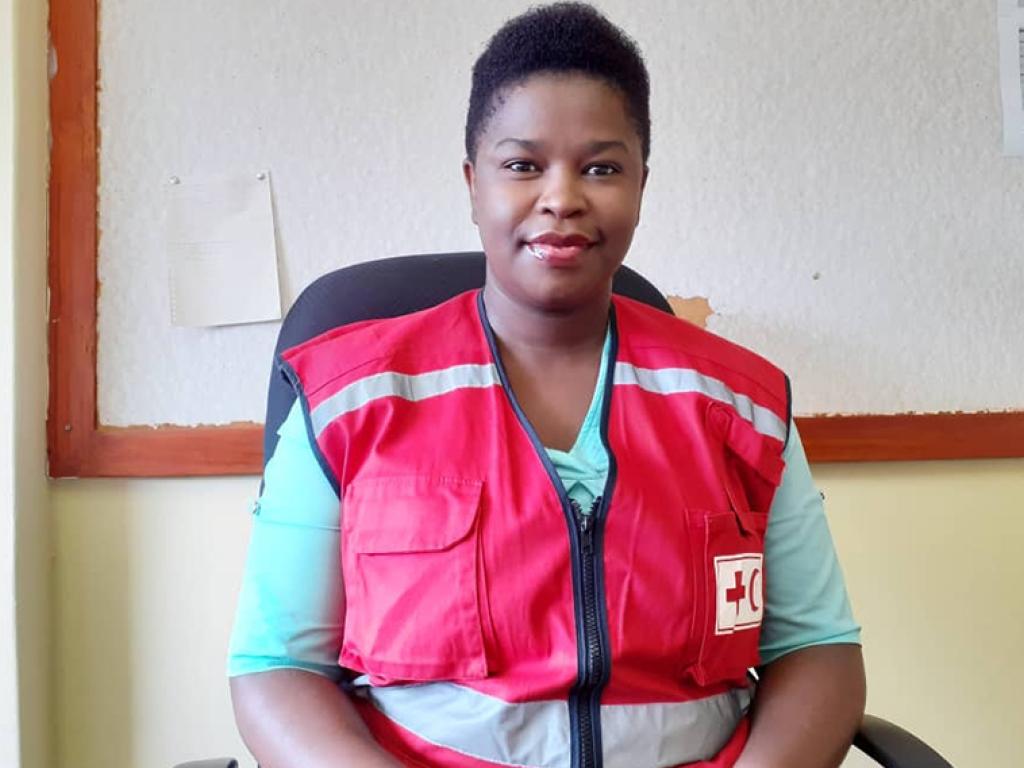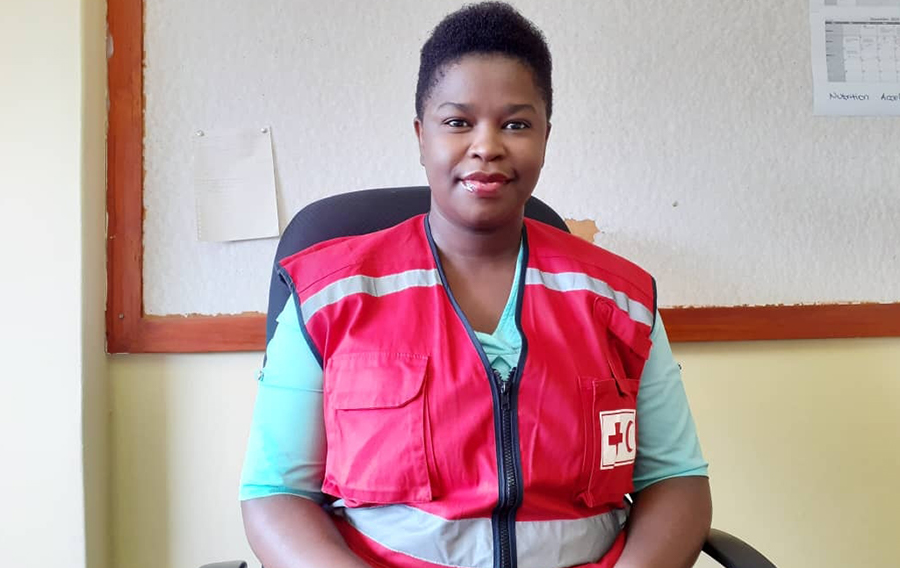Power in positivity


COVID-19 can seem like an invisible threat until it hits home, even for those fighting it at the frontlines. For Dumsile Maduna, a COVID officer with the Red Cross in eSwatini, testing positive for the virus was an experience that opened her eyes personally and professionally.
“Covid is something that can seem like it’s just a statistic. But when it comes closer, and infects your brother, mother or friend, that’s when it really strikes,” says the former Mastercard Foundation Scholar who completed her Master of Public Health at the University of Cape Town (UCT) in 2019.
“When it hit my family, it changed everything.”
As a COVID-19 officer, Maduna is responsible for overseeing the regional virus response, including six projects that involve training, distributing PPE and supporting clinics for the community.
“We make sure all the protocols and precautions that are necessary to prevent COVID-19 are in place, including reaching the most vulnerable with PPE and screening,” she says.
Maduna and the team she manages also support livelihoods with food parcels and cash transfers. According to her, more than 70% of eSwatini’s population lives below the poverty line.
“With COVID, people are losing their jobs and with that their ability to buy food. The situation’s only getting worse,” she says.
Working at the frontlines of the virus response meant Maduna was well aware of how to protect herself. But just days before Christmas, she and her husband tested positive. Heading into isolation with their one-year-old son meant not only missing the holidays, but also their friends and family.
“There is a stigma that follows testing positive and we experienced that first-hand. People are afraid to come near your house, but when you’re sick, you need their help,” she says.
While she was lucky enough to have recovered at home with her family, Maduna’s COVID experience was tough. But it is one she speaks about with positivity.
“They say experience is the best teacher, and it was quite an experience,” she says. “Now I know how Covid feels physically, emotionally and mentally and I have been able to take that experience and make a difference.”
Indeed, Maduna recovered and returned to the Red Cross with a plan to revise their curriculum and psycho-social response. “I saw a gap in our training where we needed to strengthen our protection and inclusion response. People may have Covid, but they still need support,” she says.
Taking a difficult experience and making it positive seems a theme in her life. Maduna is the eldest of six siblings, raised by a single mother. Her mother was a high school dropout, and her father a miner with no education.
Her childhood had moments of poverty and hardship which Maduna has come to remember with appreciation. “A disadvantaged background didn’t stop me from performing at my very best in school and in life. In fact, it made me the woman I am today,” she says.
Her list of accomplishments is long, from building her own family to earning her master’s degree with distinction. Graduating as a Mastercard Foundation Scholar, Maduna says she wouldn’t be where she is today without the programme.
“The support they gave us was more than just financial. They ensured we had a good learning environment and had a home away from home,” she says.
Noting its entrepreneurship training, social events, career guidance and tireless personal support, she says the programme goes beyond academics and prepares Scholars to transition back home and into the world of work.
“It helped us create a balance by building soft skills in our personal and professional lives. That's the reason we are outstanding young people out there now, acting as true leaders and ambassadors,” she says.
In Maduna’s case, her personal drive and remarkably positive perspective played their own part in that equation.
“I always say I’m one of the lucky ones,” she says. “My background has driven me to become the strong woman and successful professional that I am today.”
